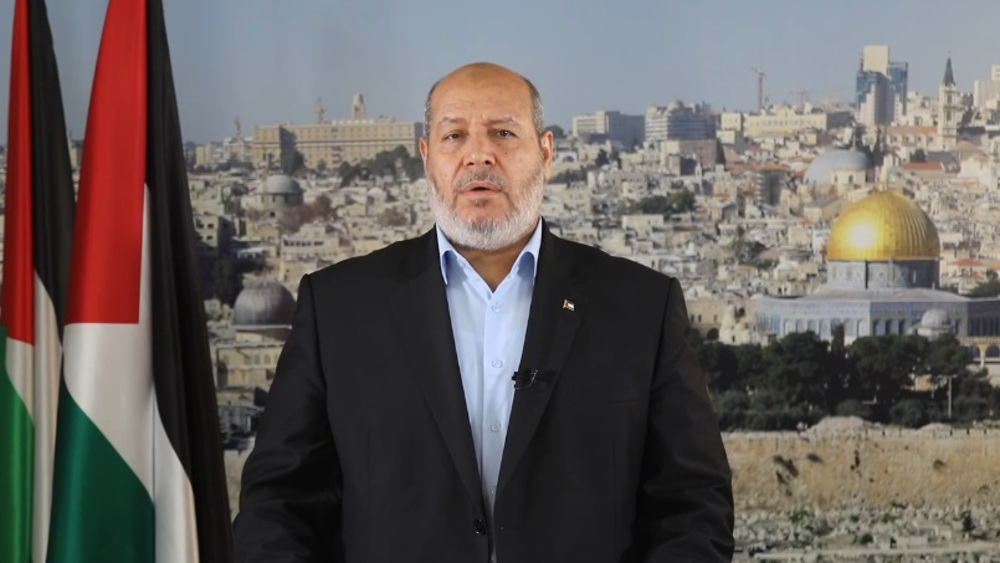Iran, Russia foreign ministers discuss nuclear deal, Caspian Sea summit
Iranian Foreign Minister Mohammad Javad Zarif and his Russian counterpart Sergei Lavrov have discussed the latest developments vis-à-vis a landmark nuclear agreement Tehran signed with the P5+1 group of countries after the United States' move to withdraw from it.
In a statement, Russia's Ministry of Foreign Affairs said the top Iranian and Russian diplomats held a phone conversation on Monday.
"The foreign ministers…exchanged views on a range of vital issues of the international and regional agenda with the focus on the situation around the Joint Comprehensive Plan of Action (the nuclear agreement, known as the JCPOA) on the Iran nuclear program," it added.
US President Donald Trump announced on May 8 that Washington was walking away from the nuclear agreement, which was reached between Iran and the five permanent members of the UN Security Council - the United States, Britain, France, Russia and China - plus Germany.
Trump also said he would reinstate US nuclear sanctions on Iran and impose "the highest level" of economic bans on the Islamic Republic.
Under the JCPOA, Iran undertook to put limits on its nuclear program in exchange for the removal of nuclear-related sanctions imposed against Tehran.
Iranian Foreign Minister Mohammad Javad Zarif said on Sunday the United States is determined to destroy the key 2015 nuclear agreement in a bid to force Iran to walk away from the deal.
He added that the US is the dominant economic power in the world and its strategic objective is to force Iran to exit the JCPOA, saying, "Of course, this does not mean that we will never walk away from the JCPOA under any circumstances, but we know the opposite side's goal."
His remarks came after Head of the Atomic Energy Organization of Iran (AEOI) Ali Akbar Salehi said on Friday that the Middle East and the entire world would face a "dreadful" future if the key nuclear agreement fell apart.
"If the European Union and other countries supporting the JCPOA do not demonstrate their practical opposition to the US policies in due time, they will face a dreadful future and unprecedented insecurity in the region and the world because of the JCPOA's collapse," the AEOI chief said.
Read more:
According to the Russian Foreign Ministry, Zarif and Lavrov also discussed the issues of bilateral cooperation and the groundwork for the scheduled 5th Caspian Sea summit.
Presidents of the five Caspian Sea littoral states - Azerbaijan, Iran, Kazakhstan, Russia and Turkmenistan - will hold a meeting in Kazakhstan’s Aktau in early August. The foreign ministers from the regional states are expected to hold talks a day before the summit.
The Caspian Sea is the largest enclosed body of water by area and is variously classed as the world's largest lake or a full-fledged sea.
The issue of the Caspian Sea’s legal regime gained importance following the breakup of the Union of Soviet Socialist Republics (USSR) and the emergence of new independent states.
The five countries’ presidents held their first meeting in Turkmenistan’s capital of Ashgabat in 2002. The second summit was held in the Iranian capital of Tehran in 2007, while Azerbaijan’s capital of Baku hosted the third summit in 2010, and Russia’s Astrakhan hosted the fourth summit in 2014.
UNRWA unraveled amid Israel's allegations, reduced intl. support
Palestinian journalist, a Sobh Media Festival awardee, killed in Gaza hours before truce
Jan. 15: ‘Axis of Resistance’ operations against Israeli occupation
VIDEO | US fires: Criticism mounts over govt. failure to respond
VIDEO | Fears, hope in Gaza amid intensified ceasefire efforts
VIDEO | Press TV's news headlines
Hamas: Ceasefire agreement result of steadfastness, resistance in Gaza over 15 months
Hamas thanks Iran, Resistance Front following achievement of ceasefire in Gaza












 This makes it easy to access the Press TV website
This makes it easy to access the Press TV website